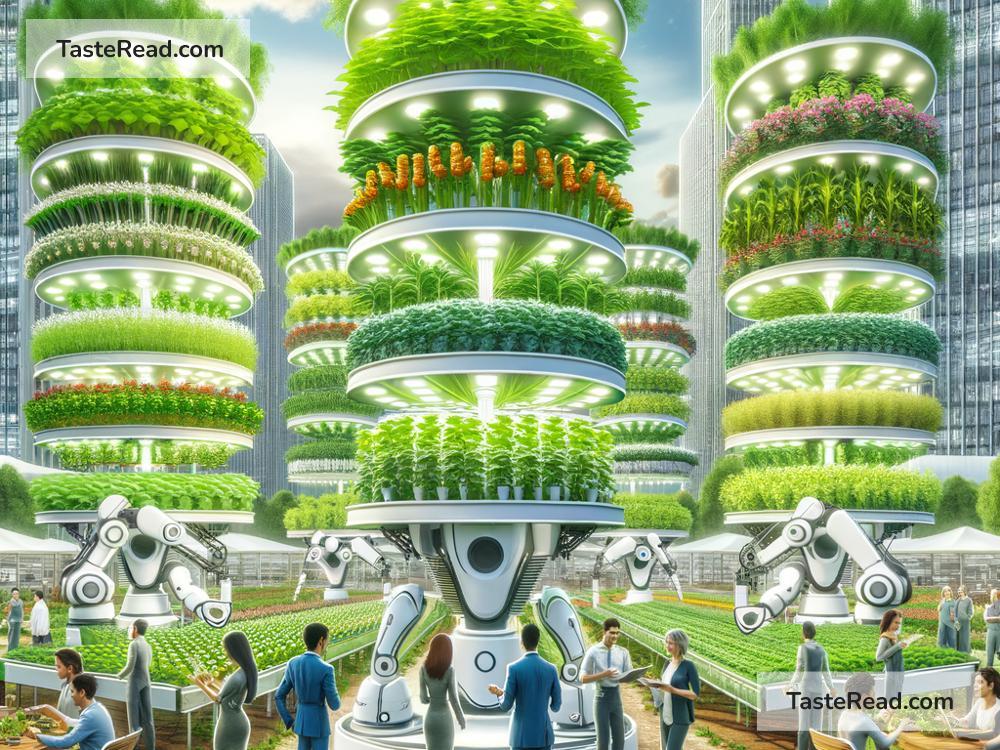The Future of Food Policy Reform: Building a Healthier, More Sustainable Food System
Food is essential to our lives. It affects our health, our environment, and even our economies. But our current food systems face many big challenges, like climate change, rising obesity rates, and food insecurity. These problems make food policy reform more important than ever. Food policy refers to the rules, laws, and practices that guide how food is grown, distributed, consumed, and wasted. As we look to the future, reforming food policies could create a healthier, fairer, and more sustainable world.
Why Food Policy Reform Matters
The food we eat doesn’t just end up on our plates—it has a long journey. Everything from farmers growing crops to grocery stores selling products is influenced by food policies. Right now, we’re facing challenges like:
- Unhealthy diets: Many people struggle to access fresh, nutritious food. Instead, they rely on highly processed foods that contribute to chronic illnesses like diabetes and heart disease.
- Environmental damage: Large-scale industrial agriculture often harms the planet, producing greenhouse gases and polluting land and water.
- Food waste: A staggering amount of food is wasted every year, while millions of people go hungry.
- Inequality in the food system: Smaller farmers, especially in developing countries, often don’t make enough money to support their families, while big corporations dominate the industry.
These issues show why food policy reform must evolve to tackle modern challenges.
Making Healthier Food More Accessible
One major goal of future food policy will be to improve access to healthy, affordable food. Many neighborhoods, especially in lower-income areas, are “food deserts”—places where it’s hard to find fruits, vegetables, and whole foods. Governments can invest in solutions like building more grocery stores, supporting farmers’ markets, and increasing funding for nutrition assistance programs, such as food stamps.
Another important change could involve regulations on processed foods. Governments might consider taxing sugary drinks and junk food to discourage consumption, similar to taxes on tobacco products. At the same time, policies can support better labeling so that consumers clearly understand what’s in their food. Imagine walking into a store and easily knowing which products are healthy!
Supporting Sustainable Agriculture
Climate change is one of the biggest challenges facing the planet, and agriculture plays a major role. Future food policies will likely focus on promoting sustainable farming practices. For instance, governments may encourage methods like crop rotation, organic farming, and regenerative agriculture, which improve soil health and reduce pollution.
Policies might also address water and energy use in farming. Big farms often waste water or rely on fossil fuels, which harm the environment. New technologies like solar-powered irrigation systems or drought-resistant crops could get more support.
Furthermore, protecting biodiversity will be a priority. For example, seeds for traditional crops are disappearing as monoculture farming—growing one crop in large quantities—takes over. Food policies could help preserve diverse crops and ecosystems to make agriculture more resilient in the face of climate change.
Reducing Food Waste
Another area of reform will focus on cutting food waste. Right now, about one-third of all food produced globally is wasted. This happens in many ways—for example, restaurants throwing out leftovers, stores discarding “imperfect” produce, and consumers overbuying food.
Future policies might encourage businesses to donate surplus food to charities or turn leftovers into compost. Governments can also educate the public about smarter ways to shop, store, and cook food. Technology can play a role too. Apps already exist to help companies track food waste and help customers find discounted food before it expires. Support for these innovations could grow.
Promoting Fairness in the Food System
For a truly sustainable food system, we need fairness for everyone involved, especially farmers. Many small-scale farmers struggle to compete with big companies, and they don’t earn enough for their hard work. Future food policies will likely focus on providing fair wages, training, and financial support for small farmers. Governments may also take steps to protect lands used for farming and ensure farmers have access to resources like water and seeds.
Achieving fairness also means addressing global food trade. Wealthy countries sometimes import cheap food from poorer nations but pay unfair prices. Changes in international food trade policies could make trading more balanced and beneficial for all.
Embracing Innovation in Food Production
The future of food policy can’t ignore the role of technology and innovation. Methods like lab-grown meat, vertical farming, and plant-based alternatives are advancing quickly. These innovations can reduce the environmental impact of agriculture while feeding more people.
Governments will need to decide how to regulate these new technologies and whether to invest in them. For example, policies could support companies researching lab-grown meat while also ensuring the final products are safe and affordable. As these solutions become mainstream, reforms will play a big role in guiding their use.
Conclusion: A Healthier, Greener Future
The future of food policy reform is both exciting and challenging. It will require governments, businesses, farmers, and consumers to work together to address issues like unhealthy eating, climate change, food waste, and unfair trade. By creating policies that support health, sustainability, and fairness, we can build a global food system that nourishes people and protects the planet.
Food isn’t just about survival—it shapes culture, communities, and economies. With better policies, the future of food can include healthier diets, thriving farmers, cleaner environments, and less waste. Reforming how we produce and consume food is an opportunity to create a better world for everyone. After all, the choices we make today will determine the meals of tomorrow.


